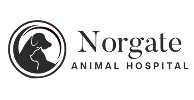Dental health is often overlooked in our furry friends, but it’s crucial for their overall well-being. Just like in humans, dental disease in dogs can lead to a host of problems if not addressed. At Norgate Animal Hospital, we want to help you keep your dog’s smile healthy and bright. Here’s how to spot and prevent dental disease in dogs, ensuring your pup stays happy and healthy.
What is Dental Disease in Dogs?
Dental disease in dogs primarily refers to periodontal disease, a condition affecting the tissues surrounding the teeth. It begins with the buildup of plaque and tartar, which can cause inflammation of the gums (gingivitis). If left untreated, this can progress to more severe issues like periodontitis, leading to tooth loss and potential systemic infections.
Signs of Dental Disease in Dogs
Recognizing dental disease in dogs early can make a big difference in their treatment and comfort. Here are some signs to watch for:
- Bad Breath: While a bit of doggy breath is normal, foul-smelling breath could be a sign of dental disease.
- Red or Bleeding Gums: Healthy gums should be pink and firm. Red, swollen, or bleeding gums indicate inflammation.
- Difficulty Eating: If your dog is reluctant to eat or seems to be chewing on only one side, it might be due to dental pain.
- Loose or Missing Teeth: Tooth mobility or missing teeth are signs of advanced dental disease.
- Excessive Drooling: While drooling can be normal, an increase in drool, especially if it’s mixed with blood, might indicate a problem.
Preventing Dental Disease in Dogs
Prevention is key when it comes to dental disease in dogs. Here are some effective strategies to keep your dog’s teeth and gums healthy:
- Regular Brushing: Just like with humans, brushing your dog’s teeth regularly helps prevent plaque buildup. Use a toothbrush and toothpaste specifically designed for dogs. Aim to brush your dog’s teeth daily, but even a few times a week can make a difference.
- Dental Chews and Toys: Dental chews and toys can help reduce plaque and tartar buildup. They also provide mental stimulation and keep your dog’s teeth clean. Look for products approved by the Veterinary Oral Health Council (VOHC) for best results.
- Routine Veterinary Cleanings: Professional dental cleanings are essential for maintaining your dog’s oral health. These cleanings, performed under anesthesia, allow for a thorough examination and cleaning of the teeth and gums. Your veterinarian at Norgate Animal Hospital can recommend a cleaning schedule based on your dog’s specific needs.
- Healthy Diet: A balanced diet contributes to overall health, including dental health. Some dog foods are specially formulated to reduce plaque and tartar. Discuss with your vet whether a dental diet might be appropriate for your dog.
- Regular Check-ups: Regular veterinary check-ups are crucial for early detection of dental issues. During these visits, your vet will examine your dog’s teeth and gums and provide recommendations for maintaining oral health.
When to See the Vet
If you notice any signs of dental disease in dogs, such as those mentioned earlier, it’s important to schedule an appointment with your veterinarian as soon as possible. Early intervention can prevent the condition from worsening and ensure your dog remains comfortable and healthy.
How Norgate Animal Hospital Can Help
At Norgate Animal Hospital, we’re committed to your pet’s health and well-being. Our team provides comprehensive dental care, including routine cleanings and treatments for dental disease in dogs. We’ll work with you to create a dental care plan tailored to your dog’s needs, ensuring their teeth and gums stay in top shape.
Don’t wait until dental disease in dogs becomes a problem. Schedule an appointment with us today to get your dog’s oral health on track!
